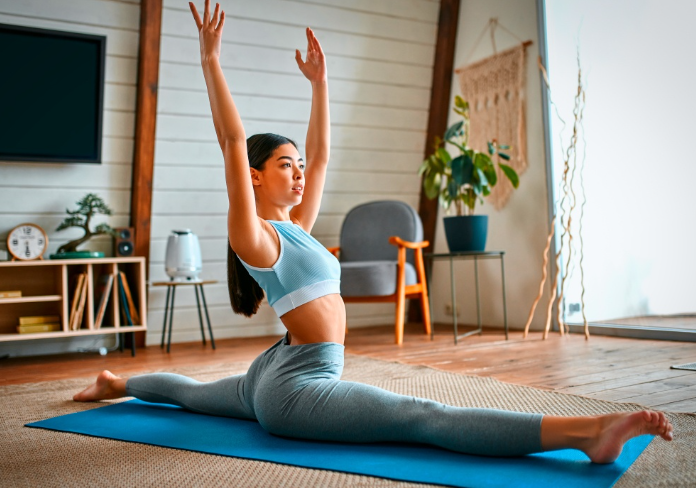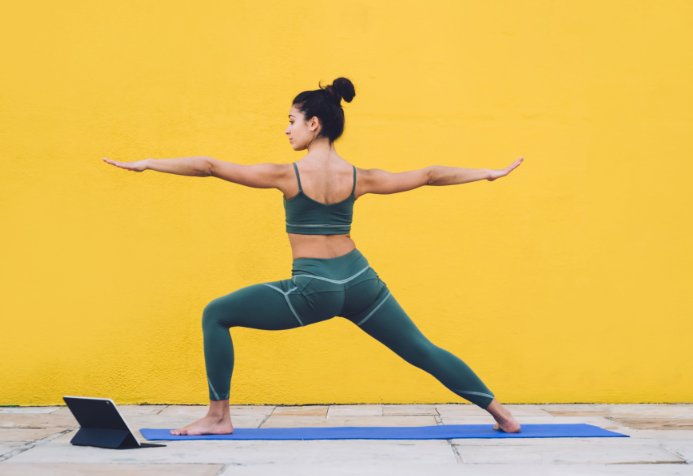Yoga, derived from the Sanskrit word “yuj,” meaning to yoke or unite, embodies a philosophy that seeks to harmonize the individual’s mind, body, and spirit. It is a practice that extends beyond the confines of a yoga mat, encouraging a holistic approach to life that emphasizes balance, mindfulness, and self-awareness. In this guide, we’ll explore how yoga, renowned for its flexibility and strength-building benefits, can be an accessible and rewarding practice for beginners.

Understanding the Basics of Yoga
Yoga is not reserved for the ultra-flexible or the spiritually enlightened. It welcomes everyone, regardless of age, fitness level, or prior experience. As a beginner, the key is to start with the basics. Begin with foundational poses like Mountain Pose (Tadasana) and Downward-Facing Dog (Adho Mukha Svanasana) to establish a solid groundwork for your practice.
The Multifaceted Nature of Yoga
Hatha is a multifaceted discipline with a rich tapestry of traditions, each offering a unique approach to achieving harmony and well-being. From the dynamic flow of Vinyasa to the precise alignment of Iyengar, and the meditative stillness of Yin, there exist a myriad of yoga styles catering to diverse preferences and needs.
5 Benefits of Incorporating Yoga into Your Lifestyle
Enhanced Flexibility and Strength
Through active engagement in yoga postures, individuals embark on a transformative journey that gradually enhances flexibility while sculpting strength in a harmonious tandem. The deliberate stretching and lengthening of muscles inherent in yoga poses contribute to the progressive improvement of flexibility. Whether it’s the graceful extension in Warrior poses or the gentle twists of seated asanas, each movement actively works to increase the body’s range of motion.
Stress Reduction and Mental Clarity
Improved Posture and Body Awareness
Balanced Energy Levels
Through the practice of hatha, particularly styles like Vinyasa that involve dynamic movement, energy flow is stimulated. This active engagement helps alleviate feelings of fatigue and lethargy, promoting a sustained and balanced level of energy throughout the day.
Enhanced Respiratory Function
Active participation in pranayama exercises enhances respiratory function. Deep and intentional breathing expands lung capacity, improves oxygen intake, and fosters overall respiratory health.
Closing Thoughts
Embarking on a hatha journey for flexibility and strength is an invitation to discover the profound connection between mind, body, and breath. As a beginner, savour the moments of each pose, relish the gentle progression, and allow yoga to unfold as a transformative practice that goes beyond the physical. Remember, the beauty of yoga lies not in perfection but in the journey itself. Namaste.


